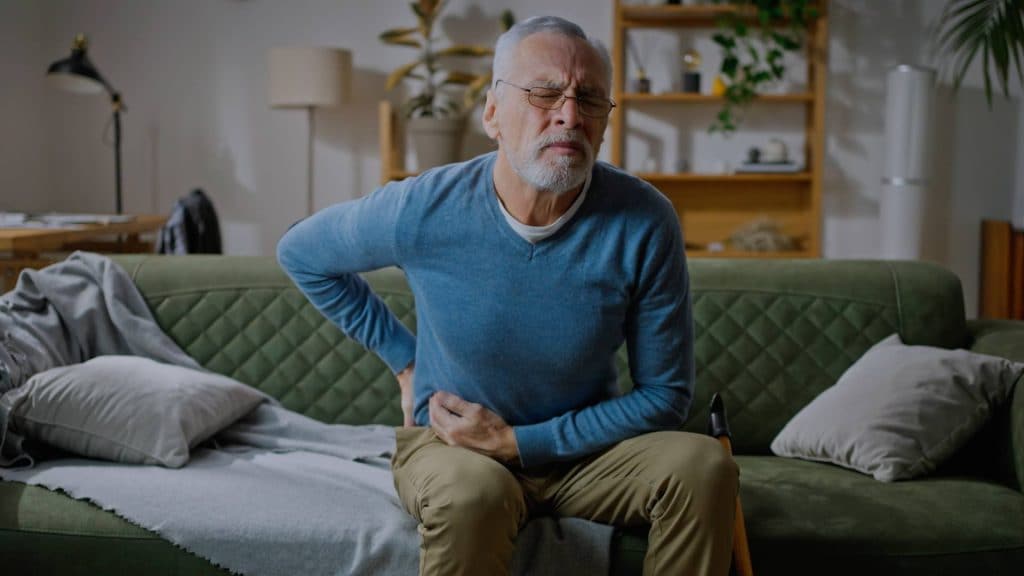Diagnosis
Tests and procedures used to diagnose gallstones and complications of gallstones include:
- Abdominal ultrasound. This test is the one most commonly used to look for signs of gallstones. Abdominal ultrasound involves moving a device (transducer) back and forth across your stomach area. The transducer sends signals to a computer, which creates images that show the structures in your abdomen.
- Endoscopic ultrasound (EUS). This procedure can help identify smaller stones that may be missed on an abdominal ultrasound. During EUS your doctor passes a thin, flexible tube (endoscope) through your mouth and through your digestive tract. A small ultrasound device (transducer) in the tube produces sound waves that create a precise image of surrounding tissue.
- Other imaging tests. Additional tests may include oral cholecystography, a hepatobiliary iminodiacetic acid (HIDA) scan, computerized tomography (CT), magnetic resonance cholangiopancreatography (MRCP) or endoscopic retrograde cholangiopancreatography (ERCP). Gallstones discovered using ERCP can be removed during the procedure.
- Blood tests. Blood tests may reveal infection, jaundice, pancreatitis or other complications caused by gallstones.

Endoscopic retrograde cholangiopancreatography
Endoscopic retrograde cholangiopancreatography (ERCP) uses a dye to highlight the bile ducts and pancreatic duct on X-ray images. A thin, flexible tube (endoscope) with a camera on the end is passed down your throat and into your small intestine. The dye enters the ducts through a small hollow tube (catheter) passed through the endoscope.
Treatment
Most people with gallstones that don't cause symptoms will never need treatment. Your doctor will determine if treatment for gallstones is indicated based on your symptoms and the results of diagnostic testing.
Your doctor may recommend that you be alert for symptoms of gallstone complications, such as intensifying pain in your upper right abdomen. If gallstone signs and symptoms occur in the future, you can have treatment.
Treatment options for gallstones include:
-
Surgery to remove the gallbladder (cholecystectomy). Your doctor may recommend surgery to remove your gallbladder, since gallstones frequently recur. Once your gallbladder is removed, bile flows directly from your liver into your small intestine, rather than being stored in your gallbladder.
You don't need your gallbladder to live, and gallbladder removal doesn't affect your ability to digest food, but it can cause diarrhea, which is usually temporary.
-
Medications to dissolve gallstones. Medications you take by mouth may help dissolve gallstones. But it may take months or years of treatment to dissolve your gallstones in this way, and gallstones will likely form again if treatment is stopped.
Sometimes medications don't work. Medications for gallstones aren't commonly used and are reserved for people who can't undergo surgery.

Laparoscopic cholecystectomy
Special surgical tools and a tiny video camera are inserted through incisions in your abdomen during laparoscopic cholecystectomy. Your abdomen is inflated with carbon dioxide gas to allow room for the surgeon to work with surgical tools.
Get the latest health information from Mayo Clinic delivered to your inbox.
Preparing for your appointment
Start by seeing your family doctor or a general practitioner if you have signs or symptoms that worry you. If your doctor suspects you may have gallstones, you may be referred to a doctor who specializes in the digestive system (gastroenterologist) or to an abdominal surgeon.
Because appointments can be brief, and because there's often a lot of information to cover, it's a good idea to be well prepared. Here's some information to help you get ready, and what to expect from your doctor.
What you can do
- Be aware of any pre-appointment restrictions. At the time you make the appointment, be sure to ask if there's anything you need to do in advance, such as restrict your diet.
- Write down any symptoms you're experiencing, including any that may seem unrelated to the reason for which you scheduled the appointment.
- Write down key personal information, including any major stresses or recent life changes.
- Make a list of all medications, vitamins or supplements that you're taking.
- Take a family member or friend along. Sometimes it can be difficult to understand all the information provided during an appointment. Someone who accompanies you may remember something that you missed or forgot.
- Write down questions to ask your doctor.
Your time with your doctor is limited, so preparing a list of questions will help you make the most of your appointment. For gallstones, some basic questions to ask your doctor include:
- Are gallstones the likely cause of my abdominal pain?
- Is there a chance that my symptoms are due to something other than gallstones?
- What kinds of tests do I need?
- Is there a chance that my gallstones will go away without treatment?
- Do I need gallbladder removal surgery?
- What are the risks of surgery?
- How long does it take to recover from gallbladder surgery?
- Are there other treatment options for gallstones?
- Should I see a specialist? What will that cost, and will my insurance cover it?
- I have these other health conditions. How can I best manage them together?
- Are there brochures or other printed material that I can take with me? What websites do you recommend?
What to expect from your doctor
Your doctor may ask:
- When did you first begin experiencing symptoms?
- Are your symptoms related to eating?
- Have your symptoms ever included a fever?
- Have your symptoms been continuous or occasional?
- How severe are your symptoms?
- How long do your symptoms last?
- What, if anything, seems to improve your symptoms?
- What, if anything, appears to worsen your symptoms?
